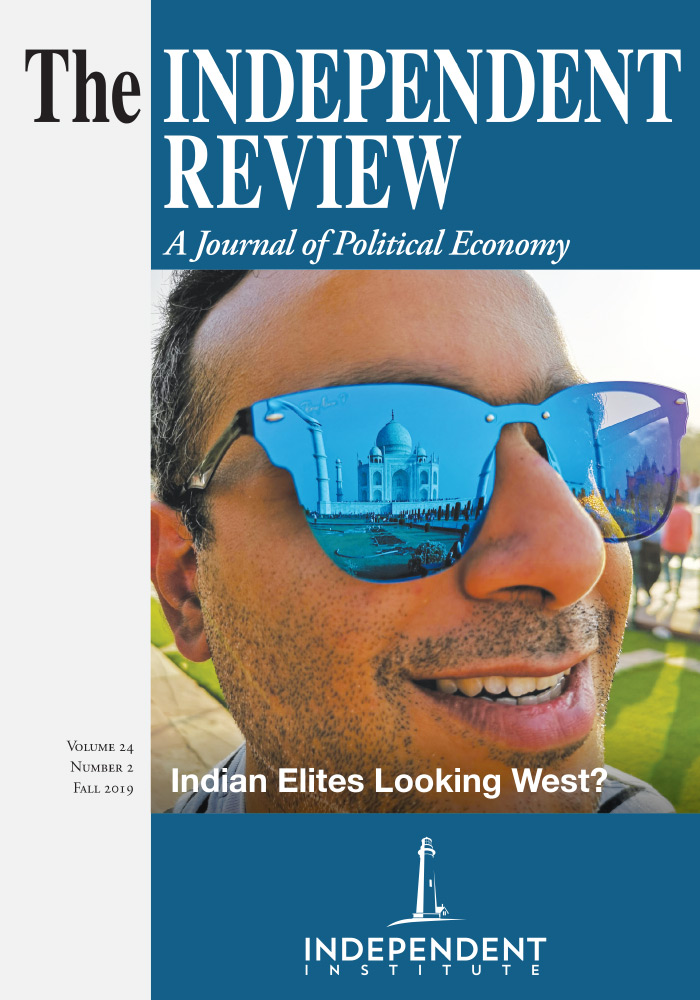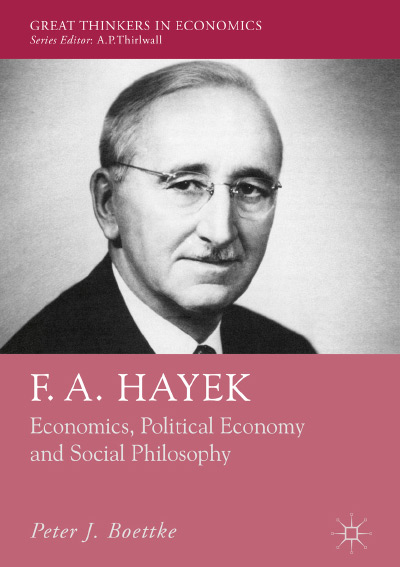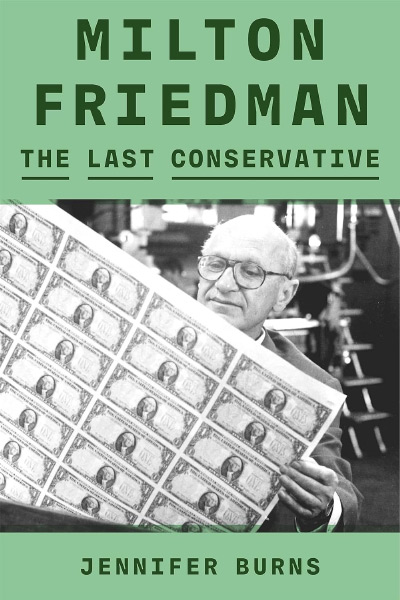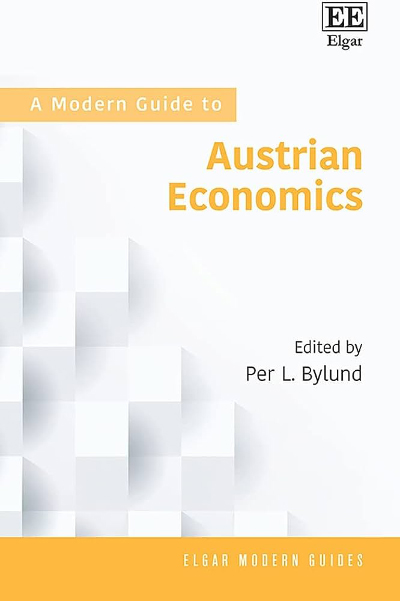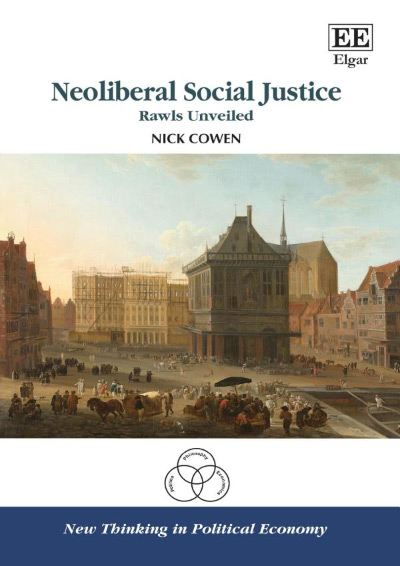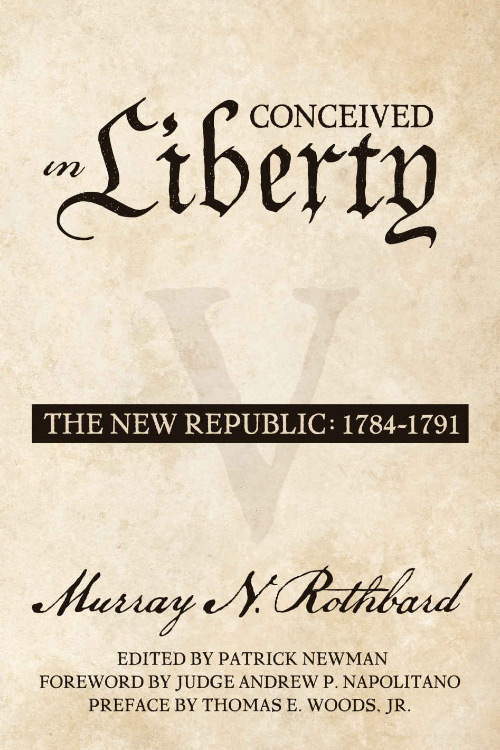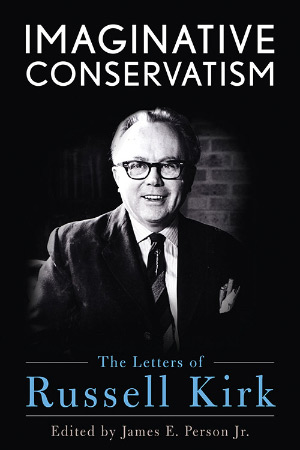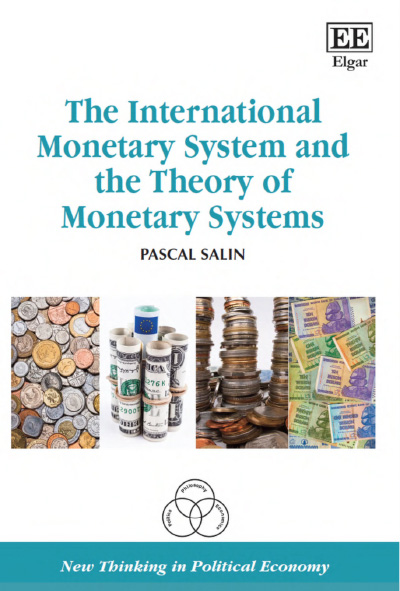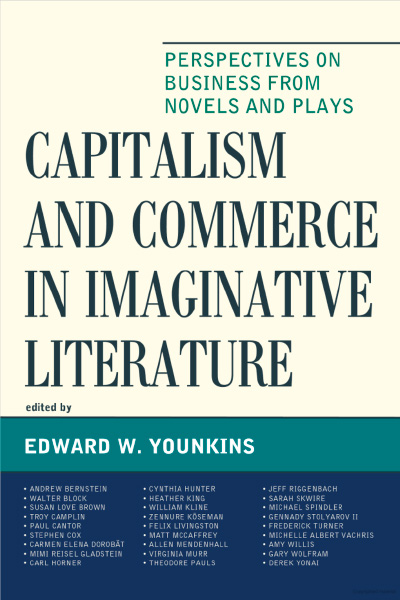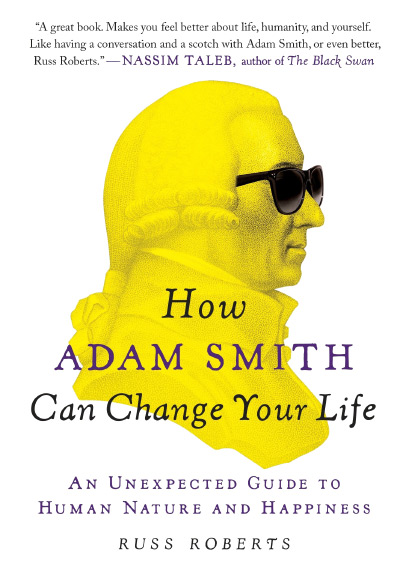The market for books on Hayek has become increasingly crowded over the past decade or two, which makes it very hard for any particular new examination of his work to stand out. Peter Boettke’s new book on Hayek in the Palgrave Macmillan series Great Thinkers in Economics manages to separate itself from the pack in a variety of ways. At one level, this should not surprise us as Boettke has spent his career engaged in scholarship on Hayek, Austrian economics, and liberalism. There are not too many other contemporary scholars more qualified to write the kind of comprehensive and forward-looking treatment of Hayek that characterizes this and the other books in this series. What Boettke manages to do in this volume is introduce Hayek to a scholarly audience and offer a systematic reinterpretation of his overarching project, and, in doing so, he makes a substantial contribution to both Hayek scholarship and the literature on liberalism. Although lay readers might gain much from engaging with this book, its real audience is other scholars, especially those who Boettke believes have misunderstood Hayek’s project in ways that he is explicitly setting out to correct.
In fact, the book’s first full chapter is devoted to “clarifying some misconceptions about Hayek.” In keeping with the book’s scholarly ambitions, Boettke quickly breezes by what he calls “ideological misconceptions” and heads straight for a list of ten “scientific misconceptions.” Many of the items on that list are ones that read Hayek’s contributions to economics as if they were part of the neoclassical mainstream rather than reflecting his distinct Austrian perspective. For example, as Boettke makes clear at numerous points throughout the book, Hayek did not think that actors are perfectly rational or that the price system is perfectly efficient. He was also not categorically opposed to government action, nor did he think the fact that something that is the product of a spontaneous ordering process automatically makes it good. The beliefs about rationality and efficiency are particularly important to Boettke’s reinterpretation of Hayek’s thought. Boettke also discusses several other scientific misconceptions about Hayek, one of which is that Hayek’s views on the price system and monetary theory were static over his seven decades of scholarship. Despite the perception in many quarters that he was dogmatic about both his own scientific ideas and his policy conclusions, Boettke persuasively demonstrates that Hayek’s views evolved as he encountered new arguments and new scientific results in economics and other disciplines. At the core of Boettke’s treatment of these misconceptions is that Hayek was first and foremost a humble scholar in search of truth and not an ideologue using economics as dogma to support his supposed prior commitments to liberalism.
The main idea that unifies Hayek’s thought in Boettke’s view is what he calls “epistemic institutionalism.” He introduces this term in the preface and uses it in various forms throughout the rest of the book. Unfortunately, there is no one place where he clearly lays out exactly what he means by that term, though its meaning is sufficiently clear as one encounters the various forms it takes in the text. Perhaps the closest Boettke comes is in a discussion of Hayek’s understanding of the price system:
As has been emphasized, in the narrative being constructed here, Hayek was concerned with the epistemic properties of alternative institutional arrangements. He did not, as we saw in our discussion of the socialist calculation debate, deny the incentive properties of institutions. But his emphasis was on how actors within the process are going to learn what they need to learn and when they need to learn it so they can adjust their plans to those of others who are also continuously learning and in such a manner that the coordination of economic activities through time is achieved. Equilibrium analysis did much to cloud, rather than clarify, this epistemic institutional conceptual task. (p. 82, emphasis in original)
In Boettke’s reading of Hayek, the task of the economist, if not of the social scientist more generally, is to understand how, why, and which institutions best enable human actors to learn and thereby coordinate their plans with others. How do we best avoid both Type I and Type II errors? It is important to understand that for Hayek this is not a matter of achieving some sort of equilibrium or optimal outcome. Rather, it is an ongoing dynamic disequilibrium process by which people attempt to coordinate in the face of uncertainty and error. As Boettke later notes, Hayek understood the way in which competition serves as a discovery process to facilitate this learning. However, competition is also “institutionally contingent” in that it will have those desirable epistemic properties only if it is framed by the right institutions—for example, “private property rights and a functioning price system to enable profit–loss calculations” as well as other more general liberal institutions (p. 87).
Boettke’s emphasis on epistemic institutionalism is the key to understanding why so many mainstream economists have misread Hayek. In twentieth-century economics, a great deal of the argumentative weight was born by the assumptions about individual actors’ rationality and their ability to respond to changing incentives. Those assumptions are what ultimately make the equilibrium models of neoclassical economics coherent. For Hayek, it is not actors’ rationality that enables us to coordinate our plans and generate progress, but rather the epistemic qualities of the institutional environment in which we operate. That is, human actors are seen as less than rational, less than fully informed, and generally fallible. Those limitations are why we need social institutions, from the price system to the law, to help us learn, correct, and coordinate. The ways in which mainstream models either ignore institutions or treat them as one more outcome of perfectly rational choice obscure the real challenge of social coordination, which is how imperfect humans make use of evolved (and imperfect) institutions to recognize their mistakes and get the appropriate knowledge and incentives to correct them. Using epistemic institutionalism this way, especially along with comparative institutional analysis, provides a way to recognize both the limits and achievements of markets and the price system. If Boettke is right, Hayek’s conception of markets has the advantage of neither overselling nor underselling what markets can do.
Though Boettke does not discuss it at any length, this is why the Hayekian perspective is more immune to behavioral economists’ criticisms—the argument does not rest on an empirical claim about actors’ rationality. In fact, Hayekians might agree with the behavioral economists’ depiction of human choice but then move the question to under what institutional arrangements we best learn from our frequent mistakes. Market and social coordination require not perfectly rational actors but rather institutions with the correct epistemic properties.
Boettke puts this reading of Hayek to work very effectively in the chapters on market theory and the price system, the socialist calculation debate, and especially his discussion of The Road to Serfdom. He also makes good use of it in the chapter on economic crises, though his treatment of Hayek’s monetary and macroeconomics work is far less deep than his treatment of Hayek’s microeconomics and political economy. The chapter on The Road to Serfdom is a highlight of the book. Boettke’s goal is to push back hard against the “slippery-slope” reading of the book’s argument. That reading sees Hayek as arguing that once you head down the road to socialist planning, it is inevitable that you will end up in a totalitarian nightmare. Rather than making a claim about inevitability, Boettke reads the apparent slippery-slope argument as “a claim about the instability between the organizational logic of planning and its effect on liberal institutions” (p. 143). More specifically, he argues that Hayek took the Mises critique of socialist planning as a given in writing that book, leading him to explore what sorts of “institutional questions that real-world socialist economists would need to face, and the logic of the situation that socialist decision-makers must confront” (p. 148). The institutions required to engage in socialist planning, even with the best of intentions, would be unable to satisfy the epistemic requirements for effective social coordination. Faced with that failure, the institutions of power thereby created would be open for capture by “those who have a comparative advantage in exercising political power over others” (p. 150). Socialist planners would therefore have to abandon either their commitment to the noneconomic elements of liberalism or their commitment to socialist planning. As Boettke emphasizes, there is no “inevitability” to the first choice. What Hayek was pointing out was that adopting institutions that cannot satisfy the epistemic requirements for economic coordination creates what Boettke calls “an instability in the policy space as a consequence of the incoherence of socialist policy means [i.e., the institutions of planning] with socialist policy ends [i.e., creating prosperity and keeping the other elements of liberal democracies]” (p. 151). Again, reading Hayek through the lens of epistemic institutionalism, especially using a comparative approach, enables Boettke to offer important new insights on old texts and questions.
Over the course of the book, Boettke builds out Hayek’s contributions from his more technical work in economics to his broader work in political economy and his contributions to liberal thought. In the chapter “The Reconstruction of the Liberal Project,” Boettke offers a Hayek-driven vision of twenty-first-century liberalism, contrasting the “liberalism” and “cosmopolitanism” of true liberalism with the “parochialism” of so many of the antiliberal movements that have arisen in the past decade. Boettke focuses on the right of exit and the importance of consent, noting that individuals as individuals always have the right to be parochial and to say “no” to “potential relationships of mutual cooperation” (p. 262). What cannot happen,
however, is for this sort of parochialism to obtain power that enables it to deny others the right to engage in such relationships of mutual cooperation. Boettke notes that these antiliberal movements force us to “turn inward” and away from the specialization and peaceful cooperation with anonymous others that generate not just economic progress but also peace. Boettke’s Hayekian vision is one where the institutional framework involves neither discrimination nor domination. It is also a framework that Hayek described as denying “all privilege, if privilege is understood in its proper and original meaning of the state granting and protecting rights to some which are not available on equal terms to others” (The Road to Serfdom [Chicago: University of Chicago Press, 1944], p. 46). Boettke’s understanding of Hayek’s liberalism is “an invitation to inquiry into the rules of governance that enable us fallible but capable human beings to live better together” (p. 269).
One criticism of the book can be made concerning what appears to be Boettke’s ambivalence about the relationship between economics and liberalism. At one point, he argues that “[l]iberalism, correctly understood, is little more than the persistent and consistent applications of the principles of economics [to] the affairs of men, be they domestic or international” (p. 200). He makes a strong case that, for Hayek, his economic ideas certainly formed the foundation for his broader liberalism. However, later in the same paragraph Boettke discusses Adam Smith, whose contributions to liberalism ranged far beyond his economics. He discusses elsewhere the importance of legal theory, constitutionalism, democracy, and one person–one vote as elements of the liberal intellectual and institutional orders. His own ambivalence about the centrality of economics to the case for liberalism is clear.
By Boettke’s own admission in those later places, liberalism encompasses more than the consistent and persistent application of economics. Indeed, as Hayek has written with Boettke’s endorsement, “But nobody can be a great economist who is only an economist—and I am even tempted to add that the economist who is only an economist is likely to become a nuisance if not a positive danger” (“The Dilemma of Specialization,” in Studies in Philosophy, Politics, and Economics [Chicago: University of Chicago Press, 1967], p. 123).
In addition, regardless of exactly how much weight one puts on Deirdre McCloskey’s argument that our “habits of the lip” were central to the emergence of markets, the Industrial Revolution, and liberalism more generally (Bourgeois Equality: How Ideas, Not Capital or Institutions, Enriched the World [Chicago: University of Chicago Press, 2016] , p. 277), it surely has some explanatory power. Liberal ideas were found and continue to be found in art, literature, religion, and science, among other places. As important as economics is, the liberal revolution was far broader than that. Boettke wonders in his otherwise excellent chapter on the reconstruction of liberalism why liberal arguments have so often been rejected, but perhaps one reason is that they have too often been framed in the overly narrow language of economics. Hayek, after all, made use of a variety of disciplinary approaches and arguments to make his case for liberalism. We would do well to learn from him.
Peter Boettke’s book is a major contribution to Hayek scholarship and liberalism. He offers a comprehensive overview of Hayek’s ideas with a distinct and productive interpretive perspective that will have to be reckoned with by anyone writing on Hayek in the future. Although the book is not for true novices, it is accessible to anyone with some knowledge of Hayek, economics, and liberal ideas. At a time when sound economics and liberal ideas are under fire as never before, this book and Hayek’s ideas deserve the broadest audience possible.
| Other Independent Review articles by Steven G. Horwitz | ||
| Winter 2020/21 | Crusoe and the Economists: An Accounting | |
| Fall 2017 | Success and Luck: Good Fortune and the Myth of Meritocracy | |
| Summer 2017 | Inequality: First, Do No Harm | |
| [View All (8)] | ||

